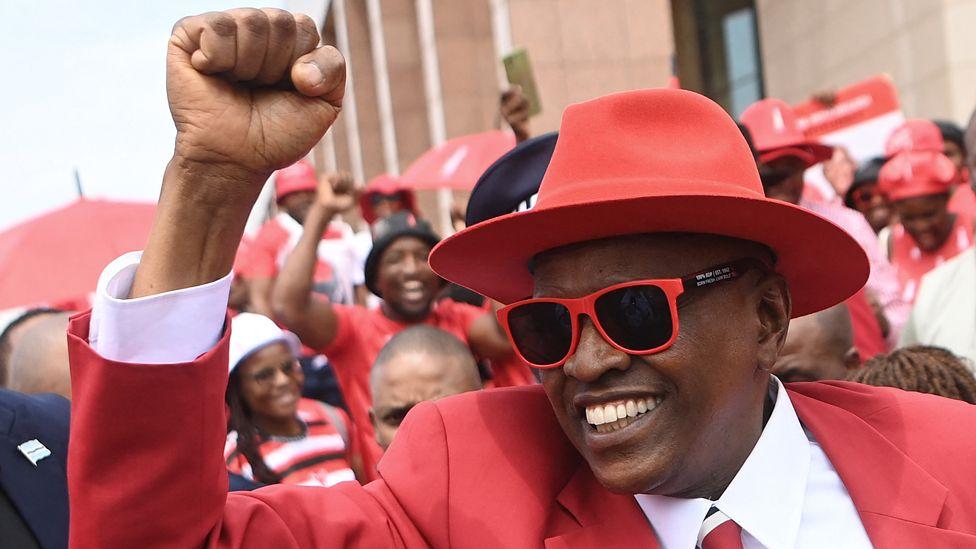Botswana is gearing up for a pivotal general election, with the long-established Botswana Democratic Party (BDP), in power for nearly six decades, adopting the unusual rallying cry for “change.” The call comes from President Mokgweetsi Masisi, who assumed office in 2018, and reflects a growing acknowledgment of widespread frustrations within the population. Despite the BDP’s historic dominance in parliamentary elections since Botswana’s independence in 1966, analysts suggest that the current electoral outcome is uncertain due to various socio-economic challenges that threaten the nation’s stability. Observers note that while the BDP has overseen significant transformations from extreme poverty to a comparatively high standard of living, the rising unemployment numbers—particularly among the youth—and economic disparities are casting shadows over its achievements.
The BDP’s invocation of “change” is a strategic shift, recognized as necessary amidst growing public disillusionment. President Masisi’s government faces the challenge of addressing a jobless economy, with one in four eligible workers unemployed and stark inequities in wealth distribution, as indicated by the Gini index. Botswana’s reliance on its rich diamond reserves has also become juxtaposed against a changing global market with reduced demand. Meanwhile, political factions, including the Botswana Congress Party (BCP) under the banner “Save Botswana,” are vocalizing dissatisfaction with the BDP’s governance and pledging more robust employment initiatives. This accumulation of economic distress is emblematic of the nation’s struggle to keep pace with the burgeoning number of graduates entering the workforce each year.
Despite the economic climate, President Masisi remains upbeat, showcasing his leadership through public engagements where he connects with constituents, emphasizing progress and a vision for a thriving future. Supporters, like local business owners, express faith in Masisi, citing improvements in support programs. However, polling data paints a bleaker picture of public sentiment, revealing widespread distrust toward the government and a perception of escalating corruption. Afrobarometer’s findings highlight a significant decline in confidence in the incumbent’s capability to maintain Botswana’s image of good governance, as previous electoral perceptions inadequately predicted actual electoral outcomes.
Challengers to the BDP, including Dumelang Saleshando of the BCP and Duma Boko of the Umbrella for Democratic Change (UDC), argue the ruling party has merely appropriated ideas around job creation without enacting meaningful change. They point to the BDP’s historical narrative of stability, now pivoting to a narrative of transformation in response to public outcry. As opposition parties rally their supporters, Boko’s emphasis on education reform resonates with constituents eager for substantive improvements, signaling a growing dissatisfaction with the status quo. Despite the issues haunting the ruling party, the division and fragmentation within opposition ranks may dilute their collective power and extend the BDP’s grip on power, as they only require the highest number of votes in constituencies.
Political chaos among opposition allies raises further questions about electoral dynamics, as parties struggle with internal feuds, leading to ineffective concerted efforts against the BDP. Meanwhile, the BDP is not without its internal discord; some candidates are defecting as independents due to dissatisfaction with the party’s primary selection processes. The ballot structure, favoring first-past-the-post mechanics, positions the BDP strategically in potential three-way race scenarios, enabling them to clinch seats despite popular opposition. Amidst this unpredictability, analysts suggest that both the ruling party and opposition groups face distinct challenges that may shape the forthcoming election landscape dramatically.
Ultimately, Botswana’s upcoming election is a multifaceted struggle against the backdrop of notable historical successes, where the established ruling party seeks to redefine itself amidst economic downturns and rising public disenchantment. As both political factions grapple with their respective issues—be it the legacy of a long-serving party or the fragmentation of opposition forces—the critical question remains: can the BDP pivot from its entrenched narrative to embrace genuine reform, or will a united opposition prevail in redirecting Botswana’s political trajectory toward the changes its citizens demand? The election promises to be a defining moment in the country’s history, as citizens weigh the past against a potentially transformative future.

